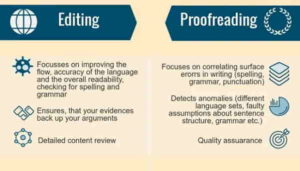The Ethics of AI in Online Photo Editing: A Case Study of Skylum Luminar Neo
The advent of artificial intelligence (AI) has brought about a significant shift in the realm of digital image manipulation. One such application that stands out in this revolution is Skylum’s Luminar Neo, an AI-powered tool that has redefined the boundaries of image enhancement.
Understanding Skylum Luminar Neo’s AI Capabilities
Luminar Neo is equipped with a suite of AI-driven features that have transformed how we interact with digital imagery. These features include:
- AI-enhanced editing: This feature allows for automatic picture adjustments, including lighting, color correction, and detail enhancement.
- Object and flaw removal: AI algorithms can identify and remove unwanted objects or flaws in an image, saving users considerable time and effort.
- AI composition assistance: This tool can suggest optimal crop and composition adjustments to enhance the visual appeal of an image.
These capabilities have made Luminar Neo a powerful tool in amateur and professional photographers’ arsenal, simplifying and streamlining the image enhancement process.
The Ethical Implications of AI in Image Enhancement

While the capabilities of AI-driven tools like Luminar Neo are impressive, they also raise important ethical questions.
- Potential for misuse: The power of AI to manipulate images opens the door to the creation of deepfakes and the potential for misrepresentation of reality. This can have critical implications in news reporting and social media, where manipulated images can spread misinformation. It’s especially vulnerable in conflict areas. Only skilled experts can differ the real image from generated one.
- Impact on the photography industry: The ease and accessibility of generation applications can devalue the skills of professional photographers and raise concerns about job displacement.
- Privacy and data security: AI tools often learn from user data, raising questions about privacy and data security. Users must trust that their data is being handled responsibly and securely.
The Responsibility of Companies and Users
As we navigate the ethical landscape of artificial intelligence in online photo editor, both companies and users have important roles to play.
- Companies: Skylum and other companies developing neuro tools are responsible for implementing safeguards against misuse and being transparent about how they use data and how their AI capabilities work.
- Users: Those who use AI tools for image enhancement must be aware of the potential for misuse and should strive to respect the integrity of original images.
The Future of AI in Image Enhancement: Balancing Innovation and Ethics
As AI continues to evolve and become more integrated into the realm of image enhancement, it is crucial to balance technological innovation with ethical considerations. Future developments in AI could include more advanced manipulation capabilities, making the ethical implications even more significant.
Artificial Intelligence has made remarkable strides in the field of image enhancement, transforming the way we interact with visual content. As AI technology continues to advance at an unprecedented pace, it opens up new possibilities for image editing and enhancement. However, with great power comes great responsibility, and striking a balance between innovation and ethics becomes paramount in shaping the future of AI in image enhancement.
AI has revolutionized image enhancement by introducing sophisticated algorithms that can automatically adjust and improve various aspects of an image. From color correction and noise reduction to object removal and composition suggestions, AI-powered tools have greatly simplified and accelerated the editing process for photographers and digital artists. These advancements have democratized image enhancement, making it accessible to a wider audience and enabling individuals with limited technical expertise to create visually stunning results.
One of the key benefits of AI in image enhancement is its ability to automate repetitive and time-consuming tasks. By leveraging machine learning algorithms, AI can analyze vast amounts of data and learn from patterns, enabling it to make intelligent and informed decisions when manipulating images. This has significantly reduced the burden on human operators, allowing them to focus on more creative and artistic aspects of their work.
However, as AI becomes increasingly integrated into image enhancement workflows, ethical considerations come to the forefront. The potential for misuse and the creation of misleading or fraudulent visual content is a pressing concern. AI algorithms can be used to generate deep fakes—convincing manipulated media that can falsely depict individuals or events. This poses significant risks in areas such as journalism, where the dissemination of manipulated images can have far-reaching consequences, eroding trust and distorting public perception.
To address these ethical concerns, a proactive approach is needed. Developers of AI-powered image enhancement tools must prioritize ethical considerations in their research and development processes. This includes implementing safeguards against misuse, such as robust authentication mechanisms that can help verify the authenticity of images. Companies should also provide transparent explanations of how their AI algorithms work, ensuring that users have a clear understanding of the limitations and potential biases of the technology.
Furthermore, regulatory frameworks and industry standards can play a crucial role in ensuring responsible AI usage in image enhancement. Governments and organizations should collaborate to establish guidelines and policies that promote ethical practices, discourage the creation and distribution of misleading content, and protect individuals’ privacy rights. This may involve implementing stricter regulations on the use of AI in certain contexts, such as news reporting or public communication, to minimize the potential for harm.
Education and awareness are also vital components in shaping the future of AI in image enhancement. Users of AI-powered tools should be educated about the ethical implications of their actions and the potential risks associated with the misuse of AI technology. By fostering a culture of responsible AI usage, individuals can make informed decisions and actively contribute to an ethical and sustainable digital ecosystem.
As we look ahead, the future of AI in image enhancement holds immense potential. Continued innovation in AI algorithms and hardware will enable even more advanced and realistic manipulations of images. From real-time style transfer to automated content generation, the possibilities are vast. However, as technology evolves, the ethical considerations surrounding AI must evolve in parallel. Ethical guidelines and practices should be continuously updated to address emerging challenges and ensure that AI serves as a force for good in the realm of image enhancement.
The future of AI in image enhancement hinges on finding the delicate balance between innovation and ethics. While AI-powered tools offer unprecedented capabilities and efficiencies in image editing, it is essential to navigate the ethical landscape responsibly. By fostering collaboration between developers, regulators, and users, we can shape an AI-driven future that promotes creative expression, respects the integrity of visual content, and upholds ethical standards. With careful consideration and proactive measures, we can unlock the full potential of AI in image enhancement while maintaining trust, integrity, and accountability.
Conclusion
The rise of AI in online photo editing, as exemplified by Skylum’s Luminar Neo, has revolutionized image enhancement. However, this revolution has important ethical implications that must be carefully considered. As we continue embracing these technological advancements, we must also commit to navigating the ethical landscape responsibly and with integrity. The future of AI in image enhancement is bright, but it is up to us to ensure that it is also ethical.






